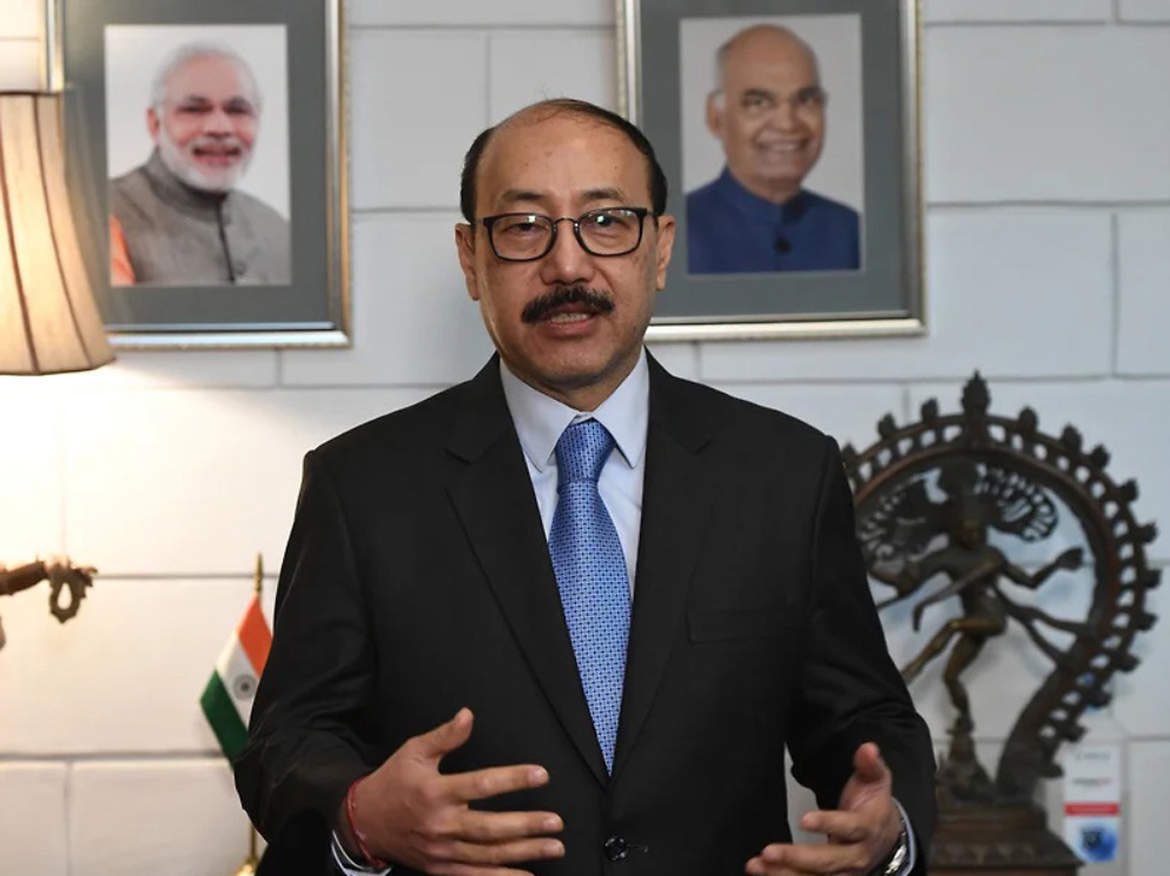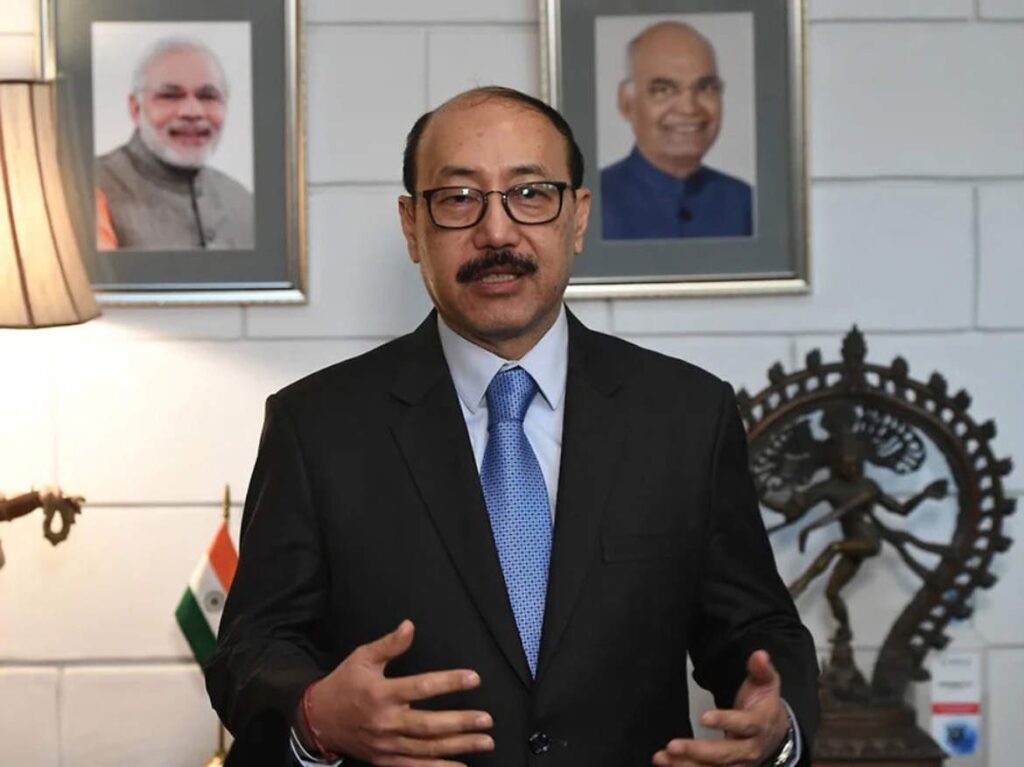
Statement by Foreign Secretary @harshvshringla at the UN Security Council High Level Ministerial Meeting on “Upholding Multilateralism and the UN-centered International System”
Thank you, Mr. President.
I congratulate you on assuming the Presidency of the Security Council for the month of May and appreciate your initiative in organising this high-level meeting on the topic of “Maintenance of international peace and security: Upholding multilateralism and the United Nations-centered international system”. Given the high expectations from the United Nation and multilateral system, particularly at this time when the world is confronted by several global challenges, not least the ongoing COVID-19 pandemic, such a discussion is indeed relevant and timely. I also take this opportunity to thank His Excellency Volkan Bozkir, the President of the General Assembly for sharing his insights.
2. Envisioned with the noble objective of saving succeeding generations from the scourge of war, the establishment of the UN in 1945 heralded a new era of international relations, committed to maintaining international peace and security, upholding international law, respecting obligations arising from mutually negotiated treaties and promoting fundamental freedoms for all humanity.
3. Founded on the principle of sovereign equality for all its members, the UN today is the most universal and representative international organisation. The UN has been credited with largely keeping the peace over the last seven and a half decades and for contributing in many ways to the betterment of the lives of the world’s humanity. At the same time, it has been found wanting in its ability to garner a concerted response to tackle the world’s most complex challenges.
4. Several contemporary global challenges have come to the fore such as terrorism, radicalism, pandemics, climate change, threats from new and emerging technologies, growing asymmetric threats, disruptive role of non-state actors and the intensifying geopolitical competition, all of which call for a robust multilateral response. While the UN has addressed most of these issues somewhat partially and intermittently, our collective effort has nonetheless fallen short in providing effective and enduring solutions, particularly due to the infirmities within the multilateral system. Mr President, 2021 is a watershed moment in the history of the world, providing a timely opportunity to reflect on the effectiveness of the UN in achieving the goals and objectives that its founders had set out 75 years ago.
5. The multitude of challenges of today’s dynamic and interdependent world cannot be addressed with outdated systems that were designed to deal with the challenges of the past.
6. The COVID-19 pandemic has sharpened our awareness of the depth of global interdependence, and on the fact that the world is only as resilient as the least resilient country. The events of the past year have clearly demonstrated how imperative it is for all countries to coordinate responses to the various challenges that the pandemic has brought to the fore.
7. It is the lack of a coordinated global response that has exposed the vulnerabilities and weaknesses of the multilateral system as it stands today, providing a timely reminder for the pressing need for comprehensive reform. While the pandemic exposed the fault lines from unreliable global supply chains to inequitable vaccine distribution, it has also underlined the need for global solidarity and strengthened multilateralism. The re-imagined post-pandemic world will make profoundly different demands from the multilateral system, which must evolve accordingly so as to be fit for purpose and capable of inspiring confidence in its ability to effectively meet those demands.
Mr. President,
8. At the core of India’s call for reformed multilateralism, lies the reform of the UN Security Council, reflective of the contemporary realities of today. When power structures continue to reflect the status quo of a bygone era, they also start reflecting a lack of appreciation of contemporary geopolitical realities. Multilateral institutions must be made more accountable to their membership, they must be open and welcoming to a diversity of viewpoints and cognisant of new voices. The Council must be made more representative of developing countries if it is to continue to engender trust and confidence in its ability to provide leadership to the entire world. It can deliver effective solutions only if it gives a voice to the voiceless rather than zealously guarding the status quo of the mighty.
9. Today, the UN has 193 Member States, nearly a fourfold increase from 1945. The narrow representation and privileges of a few in the primary decision-making organ of the UN poses a serious challenge to its credibility and effectiveness. How can we explain the contradiction of Africa not being represented in the Security Council in the permanent category, even though African issues dominate its agenda?
10. Speaking on the occasion of the 75th anniversary of the UN last year, the Prime Minister of India gave a clarion call for UN reform, and I quote: “For how long will India be kept out of the decision-making structures of the United Nations? Reform in the responses, in the processes, and in the very character of the UN is the need of the hour. It is a fact that the faith and respect that the UN enjoys among the 1.3 billion people in India is unparalleled.”
Mr. President,
11. As a founding member of the UN, India has consistently displayed its commitment to uphold the purposes and principles of the UN Charter. We remain committed to upholding the rules-based international order, underpinned by international law, premised upon respect for the sovereignty and territorial integrity of all Member States, resolution of international disputes through peaceful negotiations and free and open access for all to the global commons.
12. India stood at the forefront during the UN’s tumultuous years of struggle against colonialism and apartheid. During our eight terms as a member of the Security Council, we have always endeavoured to be a voice of reason and understanding, a voice of the underrepresented developing word, a bridge-builder for narrowing divides and fostering consensus. We have been the leading advocate of the concerns and aspirations of developing countries and the creation of a more equitable international economic and political order.
Mr. President,
13. India has contributed immensely to maintaining international peace and security as a leading troop contributing country towards UN Peacekeeping Missions, having sacrificed the highest number of lives in this noble endeavour.
14. We have also fostered global socio-economic development through transparent, viable, sustainable and demand driven partnership programmes. On climate action, India is today one of the few countries, which is on track to meet its mitigation commitments under the Paris Agreement. We have also taken the lead in launching important multilateral initiatives on climate action like the International Solar Alliance and the Coalition for Disaster Resilient Infrastructure.
15. Over the past year alone, we have provided COVID-19 vaccines, pharmaceuticals and medical equipment to more than 150 countries across the world. In that same spirit of friendship and solidarity, we extend deep appreciation to those that have come forward to provide us with some priority requirements to battle the second wave of the COVID-19 pandemic that we are currently facing.
16. India has also worked with South Africa and other partners in the World Trade Organisation to seek a relaxation in the norms of the TRIPS agreement to ensure quick and affordable access to vaccines and medicines for developing countries during the COVID pandemic. This waiver will be an important step for enabling the rapid scaling up of manufacture and timely availability of affordable COVID-19 vaccines and essential medical products on a global basis.
17. In conclusion, Mr. President, we believe that a renewal of vows towards a reformed UN-centered multilateral system will require genuine efforts on behalf of all Member States. For its part, India has always sought to strengthen the forces of cooperative multilateralism.
Thank you, Mr. President.
https://www.mea.gov.in/Speeches-Statements.htm?dtl/33851/Statement_by_Foreign_Secretary_at_UNSC_highlevel_meeting_on_Maintenance_of_international_peace_and_security_upholding_multilateralism_and_the_United_N

